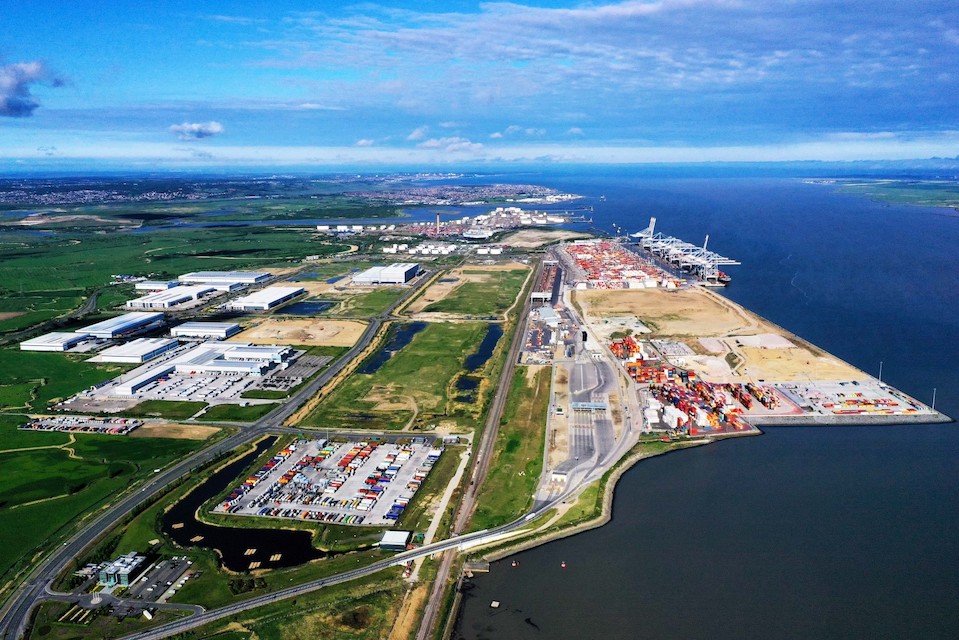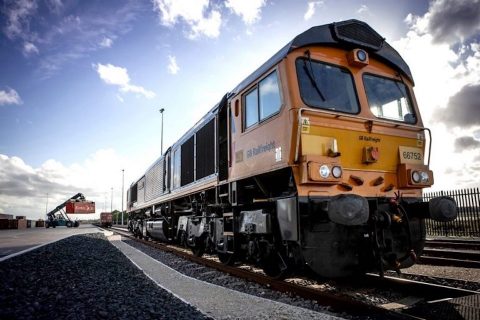UK: DP World launches major modal shift plan with financial incentives

DP World has unveiled its ambitious ‘Modal Shift Programme’ aimed at encouraging customers to choose rail transportation over road for their imported goods. The program includes attractive financial incentives designed to make intermodal rail more appealing to customers, with the potential to prevent approximately 30,000 metric tonnes of CO2 emissions annually. The program will be trialled at the Southampton hub for an initial period of 12 months starting in September.
John Trenchard, UK Commercial & Supply Chain Director at DP World, emphasised the company’s commitment to sustainability and its goal of becoming a net-zero logistics organisation by 2050. Trenchard expressed that the Modal Shift Programme would not only support DP World’s decarbonisation efforts but also align with the UK government’s objective of shifting freight transportation from road to environmentally sustainable alternatives such as rail.
Optimise operations, sustainability and decarbonisation
Under the program, a flat fee of ten pounds will be charged on all import-laden containers. Customers whose containers are transported to a railhead located more than 140 miles (225km) from the terminal will be reimbursed. Additionally, customers whose containers are moved to a railhead within the 140-mile zone will receive a seventy pound incentive. While the economic advantages of using intermodal rail for distances exceeding 140 miles from Southampton are already evident, the incentives aim to encourage a modal shift for deliveries within the closer range.

Governments across the UK have mandated carbon-reducing measures over the whole economy. Modal shift from road to rail for freight has often been targeted for action. Shifting a significant portion of freight from road to rail brings numerous benefits, including environmental impact, decreasing carbon emissions, noise pollution, and road maintenance costs. The DP World incentive scheme should help businesses to optimise their operations, streamline logistics, and contribute to the national and global goals of sustainability and decarbonisation. It represents a significant step toward building a greener, more resilient, and efficient freight transport network in the UK.
Global reduction in carbon dioxide
DP World’s rail freight assets in the UK play a significant role in facilitating modal shift. The company operates some of the most advanced logistics hubs in the country, including deep-water ports in Southampton and London Gateway, both of which have access to freight rail terminals. In 2022, Southampton achieved its greenest year ever by reducing net carbon emissions from the port by 55 per cent. According to the operator, DP World’s investment in rail infrastructure at Southampton and London Gateway has resulted in 300,000 truck journeys being taken off UK roads annually. Recently they introduced a ground-breaking weekly rail freight service connecting the two terminals, which has already removed up to 120 lorries per week.
These initiatives in the UK, according to the company, have contributed to DP World’s global reduction in carbon dioxide emissions, with a five per cent decrease in 2022 and a twenty per cent reduction in the European region alone. By proactively incentivising customers to choose rail transportation, DP World aims to increase the rail share in its supply chain network to around 40 per cent by the end of 2025, thereby eliminating approximately 30,000 tonnes of CO2 from customers’ onward supply chains.




